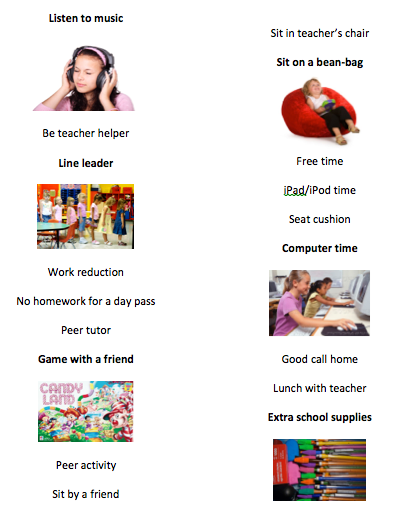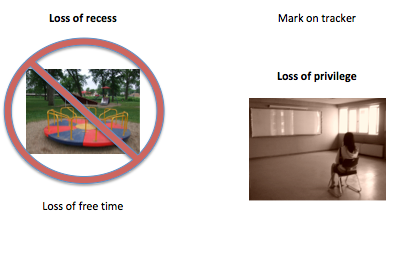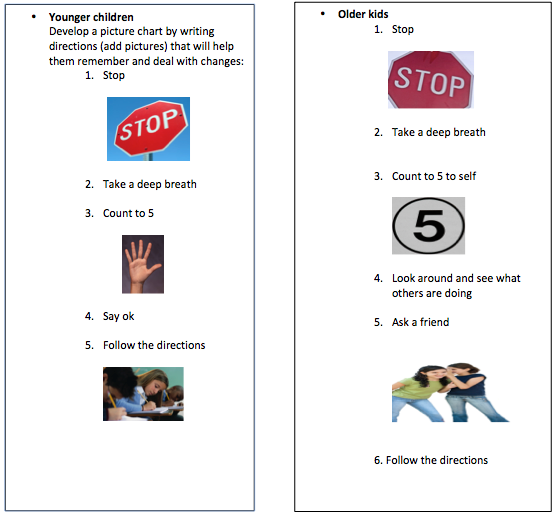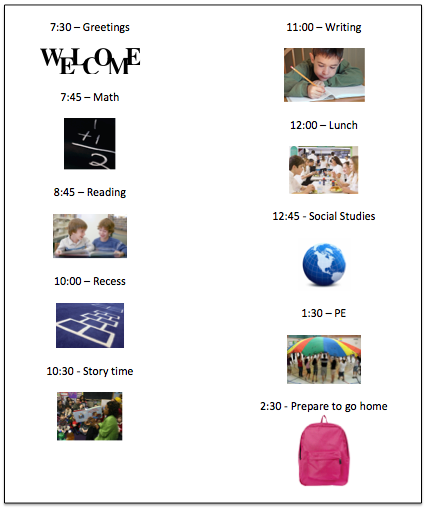(Use with Autism, Emotional Disturbance, Learning Disabilities)
Precision Commands (or Precision Requests) are best used to make sure the student understands what you want.
“Please….”
“I need you to….”
Consequence
Example:
Step 1
- Say name of the student then say "Please follow my directions"
- Wait 7-10 seconds
- If the student complies with the request then give praise or small reward
- If the student does not comply, go to step 2
Step 2
- Say student's name...for example, "James, you NEED to follow my directions"
- Wait 7-10 seconds
- If compliant then reinforce
- If noncompliant go to step 3
Step 3
- Name of student and the undesired behavior "James, that is not following directions"
- Label the pre-planned consequence "You will miss the next activity, that is a consequence"
Consequences can be good or bad.
Positive consequences:

Negative consequences: (these must be age appropriate)
(Best to choose with the team)


Encourage Appropriate Behavior in Young Pupils
Student may be working for a tangible reward such as extra time using an iPad. The student carries or wears a lanyard with a picture of the iPad
(Or something else he is working for) with stars under it. He must earn so many stars to get the extra time on the computer. For non-compliance he may lose a star for each non-compliance occurrence. (Rewards should outnumber the loss of rewards by a ratio of 6 to 1.
Helping Behavior in Pupils with Asperger/Autism
Help students to prepare for changes in routines.

For younger children with Asperger/Autism
Make a picture chart that shows the daily routines.

Helping Behavior in Pupils with Asperger/Autism
When a pupil has earned points or stickers (such as stars) do not take away what they have earned and do not give back what they have lost. Always remain consistent. Don’t give back some time and take away at other times. Consistency is imperative. If they have earned stars, they should carry over to the next day and not start over each day.
Have precise, explicit expectations for students. Remain consistent at all times.
Avoid and avert arguments. Help students to understand that the situation will be discussed at a fixed time—usually after they have had time to “cool down.”